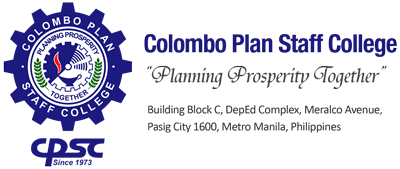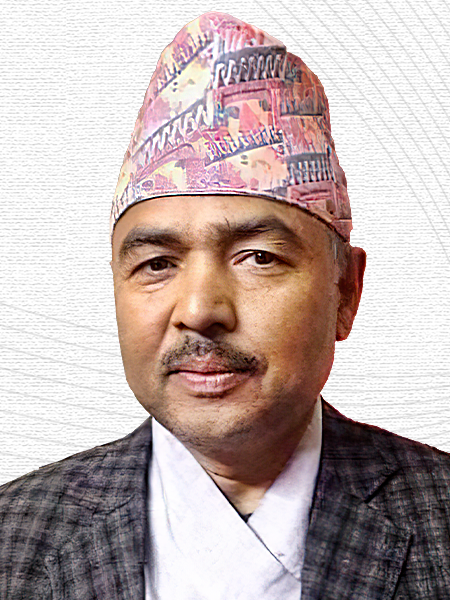
DATE: March 18-22, 2024 |
VENUE: CTEVT, Sanothimi, Bhaktapur, Kathmandu, Nepal
|
ORGANIZERS: Colombo Plan Staff College (CPSC) andCouncil for Technical Education and Vocational Training (CTEVT) |
Background
The 21st Century Skills framework for the Asia Pacific region in Technical and Vocational Education and Training (TVET) is designed to equip individuals with the essential competencies needed to thrive in the rapidly evolving global landscape. Recognizing the dynamic nature of industries and the increasing demand for a highly skilled workforce, this framework aims to bridge the gap between traditional educational approaches and the contemporary needs of the workforce. This framework is tailored to the unique challenges and opportunities present in the Asia Pacific region, taking into consideration cultural, economic, and technological factors. The emphasis is on fostering a holistic set of skills that go beyond mere technical expertise, encompassing critical thinking, adaptability, communication, collaboration, and digital literacy. The goal is to empower individuals to navigate the complexities of the modern workplace and contribute meaningfully to the socio-economic development of the region.
Skills in the 21st Century are the combination of abilities, abilities, and learning habits that have been determined to be necessary for success in modern society and workplaces by educators, business leaders, academics, and government agencies. This is part of a growing international movement focused on the skills students need to succeed in a rapidly changing, digital society. analytical reasoning, complex problem solving, and teamwork are among deeper learning skills that are based on mastering skills. In several ways, its impact on the workplace and the requirements of the educational system for preparing students for employment has been significant.
The Fourth Industrial Revolution set a new momentum in the training and development sector. Industrialization automation and other global problems are solved by the revolution, which brings new exciting opportunities. It will also produce new jobs that have yet to be invented. Despite increasing investments in vocational education and Colombo Plan Staff College (CPSC) and Council for Technical Education and Vocational Training (CTEVT) 11 training (TVET), there is a significant obstacle to skills development. Thus, it is imperative that educators, governments, and policymakers ask themselves how they can prepare current and future TVET to thrive in the digital world. Technical and Vocational Education & Training in the Fourth Industrial Revolution (TVET 4.0) is a complicated, conflicting, and exciting opportunity that has the potential to change society for the better. Artificial intelligence will lead the fourth industrial revolution, which will change how people work. Because of the convergence of man and machine, it will reduce the subject distance between humanities and social science as well as science and technology. This will necessarily require much more interdisciplinary teaching, research, and innovation in TVET.
Therefore, TVET stakeholders in the Asia Pacific region have to set new initiatives and make efforts to integrate 21st Century skills and to develop digital competencies in TVET to address IR 4.0 needs that will produce globally competitive graduates and meet the needs of the 21st Century.
Technical and Vocational Education and Training (TVET) needs to properly prepare their students to live and work in the twenty-first century. Providing students with crucial skills for the 21st Century and IR 4.0 is included in this preparation. Thus, it is critical to incorporate contemporary skills and elements of IR 4.0 into TVET curricula. TVET programs must make great efforts to improve the skills of the 21st Century so that their graduates have high employability expectations. Thus, CPSC is organizing the in-country program to impart concepts, integration procedures, and guidelines to incorporate the critical elements of twenty-first-century skills and IR 4.0 into the vocational education and training (TVET) system.
For effective teaching and integration of 21st-century skills, alternative instruction models and methods must be used. This includes inquiry, collaboration, creation, communication, and problem-solving learning. Project-based learning requires technology. In terms of technology integration, students will have unique learning needs, and technology can help them customize and personalize their learning. Consequently, before starting their classes, teachers and education personnel must acquire the expertise and knowledge of modern teaching management skills. By implementing this 21st Century Skills framework in TVET, the Asia Pacific region aims to produce a workforce that is not only technically proficient but also equipped with the versatile skills needed to thrive in a rapidly changing global landscape. This approach contributes to the region’s competitiveness and sustainable development by preparing individuals for the challenges and opportunities of the 21st century.
Objectives
The participants are expected to:
- Understand the concept of 21st Century skills and IR 4.0
- Discuss the importance of 21st Century Skills for TVET on Digitalization
- Gain knowledge, experiences, and skills on 21st Century Skills in developing and designing the curriculum in Academia and Industry linkages.
- Integrate the 21st Century Skills for TVET into the teaching and learning management of TVET
- Encourage and develop the 21st Century Skills to be suitable for employability in the future workforce.
- Develop curriculum framework incorporating 21st Century Skills and IR 4.0
- Be familiar with ICT & digital technology to integrate 21st Century skills and IR 4.0 in TVET
Expected Outputs and Outcomes
The expected outputs of the program are;
- Good Practices and Lessons Learned using “SWOT” analysis
- Develop Digital Technology Curriculum Framework on 21st Century skills
- Integrating 21st Century skills culture in TVET teaching and learning management
The Participants are expected to gain more knowledge and experience of 21st Century Skills for TVET in developing and designing the curriculum in TVET as the 21st Century skills are tools that can be universally applied to enhance ways of thinking, learning, working, and living in the world. The skills include critical thinking/reasoning, creativity/creative thinking, problem-solving, teamwork, metacognition, collaboration.
Program Contents
To achieve the objectives set forth, the following strategies will be employed in a consultative nature:
Theme Papers & Presentations on the following:
- Theme Paper 1: Integrated 21st Century Skills in TVET
- Theme Paper 2: TVET Digitization for Global Competitiveness
- Theme Paper 3: TVET 21st Century New Skill in IR4.0 and Beyond
- Theme Paper 4: Digital Learning Components in 21st Century
- Theme Paper 5: Technological Adaptation and Continuous Learning
- Theme Paper 6: 21st Century Skills in Workforce Demand
- Theme Paper 7: Excellence of Leadership for Change Management Through PDCA Cycle in TVET for 21st Century
Workshops & Activities
- Workshop 1: SWOT Analysis of TVET Institute on Image Building in a 21st Century Environment.
- Workshop 2: Creating Digital Learning in 21st Century Skills using Virtual Digital Platform.
- Workshop 3: Practicing via Demonstration 21st Century Skills Delivery in Real Time Classroom (Hands-On Section and Competent Delivery).
(Introducing AR, VR, and MR Tools and Hands-on)
Seminar on “Empowering New Skills in the 21st Century”
- Session 1: TVET with 21st Century Skills & the VUCA World
- Session 2: Global Digital Trends in Teaching Curriculum for Academician
- Session 3: TVET Digitalization and Industrial Linkages in 21st Era
- Session 4: Open Forum
Participants' Profile
This in-country program is designed for College Directors, Deputy College Directors, Assistant College Directors, Administrators, TVET Teachers/instructors/lecturers, and educational practitioners related to the TVET Authority.
Date and Venue
The five-day program will be held from March 18-22, 2024 at the Council for Technical Education and Vocational Training (CTEVT) in Kathmandu, Nepal.
Facilities Requirements
To conduct the program smoothly, the following facilities are required:
- Laptop computers (preferably participants to bring their laptop)
- Internet Connection (LAN/WAN)
- Audio and Video Equipment
- Multimedia Projector and Projection Screen
- Flipcharts and large papers (for brainstorming activities)
- Pens/Markers
Program Management and Resource Persons
|
|
|
|
|
|
|
|
|
|
|
|
|
|
|
|
Program Schedule
















